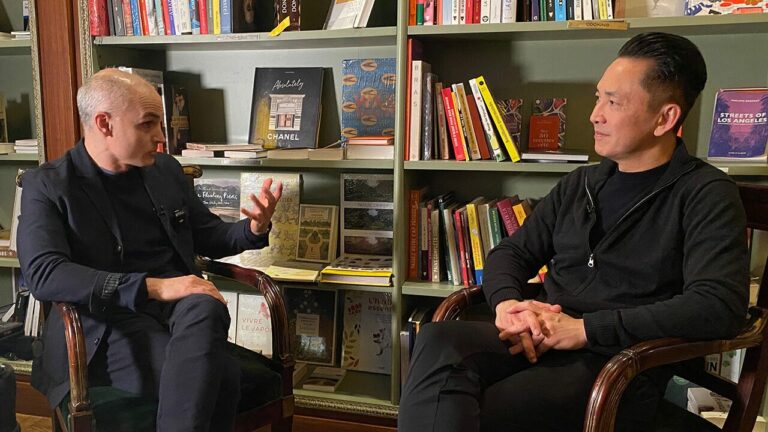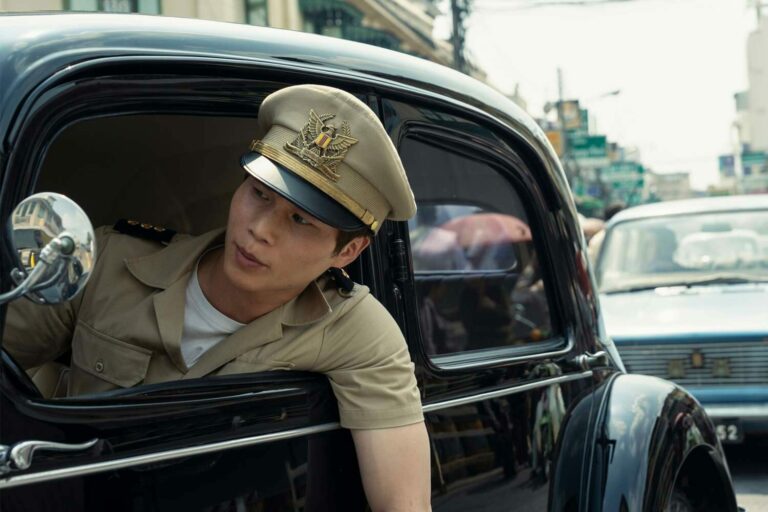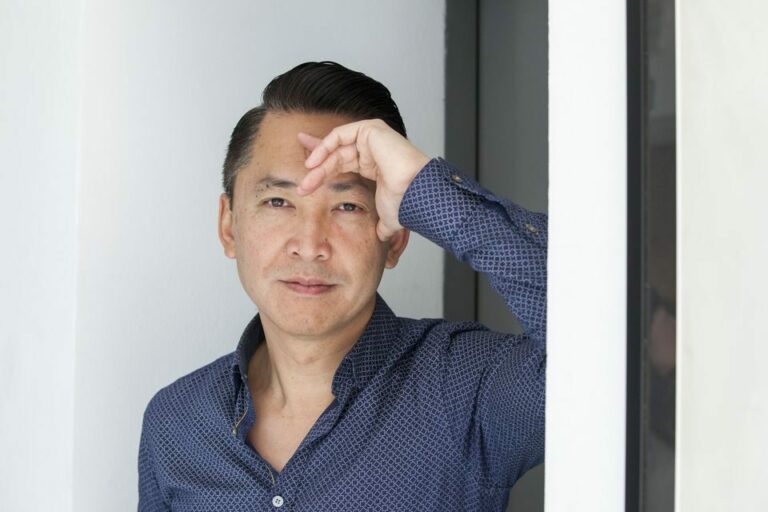The author’s books and lectures liberate challenging perspectives from the confines of genre, expectation, and academia for Alta

Viet Thanh Nguyen may be one of the most revolutionary thinkers in America, and he’s hiding in plain sight. If you’ve been to a literary festival or to a bookstore in the past decade, you will have encountered the prolific University of Southern California professor and novelist. The journey he took to this position—never gratuitously re-narrated—is breathtaking and powerful. Having grown up a refugee, the child of a mother and father who were doubly displaced themselves and who worked as shopkeepers of the second Vietnamese grocery store in San Jose, Nguyen went on to win a Pulitzer and a MacArthur “genius” grant for his novels, works of critical thinking, and short stories. It is the kind of life story that can seem to prove the American dream.
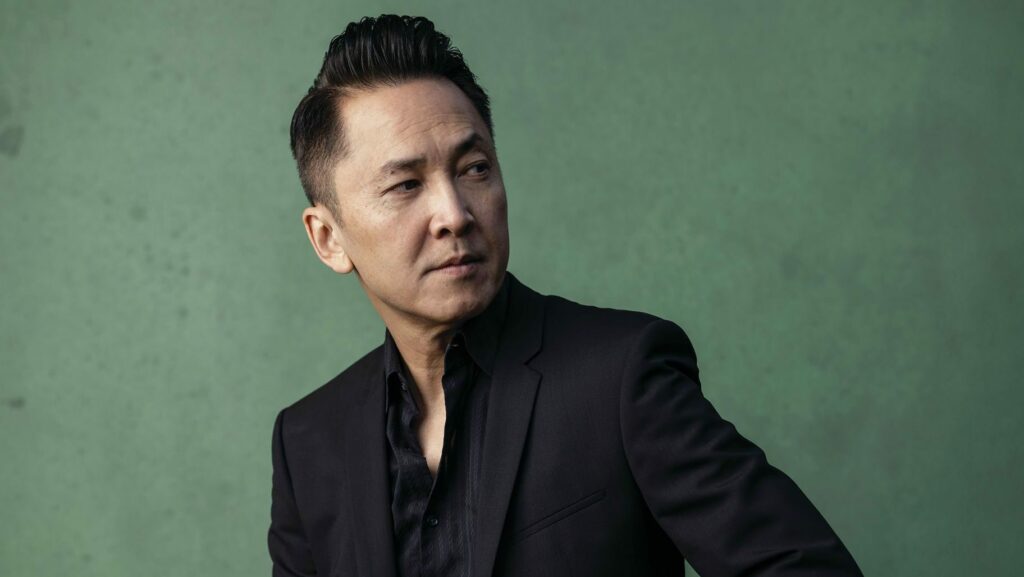
But Nguyen’s writing is powerfully disquieted by contradictory narratives, by the ways big ideas filter down and shape and occlude deeper power structures. Nguyen often addresses this rupture with humor and satire, and it’s often not until he has moved on to the next project that the target of his humor becomes clear. In the past decade, as he has worked across a dazzling array of genres—theoretical, fictional, even in the realm of children’s literature—Nguyen has performed a high-wire act. He has advocated powerfully for the need for Asian American identity, but he has always unraveled the ways success within this identity cuts against the grain of liberation.
These disquietudes have entered the foreground in the past year of Nguyen’s life as he has unfurled a trio of projects. The first was his memoir, A Man of Two Faces, which chronicles with jagged intensity his upbringing in San Jose, his mother’s struggles with mental illness, and the losses attendant on growing up the child of immigrants being schooled in how to be by Hollywood. Nguyen has also been giving the prestigious Norton Lectures at Harvard University, but in his own fashion: making jokes about the pay, highlighting his unlikely appearance onstage, and then moving through a sophisticated reading of the politics of being an other to challenging listeners—especially Asian Americans—to consider the plight of Palestine. On top of it all, he has a new children’s book on the way. I recently caught up with Nguyen during his office hours at USC. This interview has been edited for brevity and clarity.
JOHN FREEMAN: Your Norton Lectures at Harvard and your recent memoir, A Man of Two Faces, seem conjoined, like you’re making explicit some of the tasks of writing as other and the bargains that are presented to you as a successful emigrant in the United States. You’re also addressing the bifurcation of what was called Oriental and Asian American in the past 50 years of American life. “What is the worth of defending our lives,” you say at one point, “if we do not seek to protect the lives of others?” Are you beckoning your audience, if you will, toward an expansive solidarity?
VIET THANH NGUYEN: I had not originally planned to talk about Palestine in the lectures. But then, of course, October 7 and the war happened, and it just seemed inevitable and necessary to do so. But in bringing up Palestine in relation to Asian Americans, I’m discussing something that has been increasingly more explicit among Asian American activists and intellectuals, who I think are not the same, necessarily, as the Asian American population overall. There’s a big gap there, and it’s one that has increasingly perplexed me and been a matter of great concern for me.
I say this because becoming an Asian American was fundamental to me, for my own personal well-being and growth but also for becoming a writer and any kind of a thinker that I might happen to be. It’s caused me quite a bit of angst over the past 20 years to think about how important the Asian American project has been to me but also how increasingly insufficient it has seemed to me for the last 20 years, in my own personal case, ever since I finished my first book, Race and Resistance, which is all about Asian American literature and politics, and saw some of the limitations and built-in contradictions of this Asian American project.
The war in Gaza, like many other wars, brings out latency and contradictions for all the different parties involved. For Asian Americans, that blatant contradiction is between, on the one hand, a project of identity and national belonging and Americanness and all these things that are obviously really important for those of us who are just dealing with domestic politics inside the United States. But on the other hand, there’s this other aspect of war and empire. That lecture was my attempt to spell out how important, especially for us, the question of Palestine is, because of the intellectual political trajectories that link Palestinian liberation to Asian American formation.
The thinker and critic Edward Said appears in both A Man of Two Facesand your Norton Lectures. Do you recall your first encounter with his work and what struck a chord with you?
I read him as an undergraduate, with my first encounter being Orientalism. I applied his theory to Graham Greene’s The Quiet American in one of my senior theses.
A Man of Two Faces and your lectures are both saturated with other texts—they’re disrupted by other texts. Can you talk a little bit about the risks that you’re taking in these lectures and in your memoir, as you perceive them, in making transparent some of the ethical disquietudes you have growing up the son of two immigrants, whose stories—especially your mother’s—make up a big part of the book?
I found the project of writing this book to be quite terrifying. A memoir is, if you’re going to write a good one, about exposure, self-exposure, and the exposure of those who are intimate to the writer. As I make clear in the book, that is a process of both self-betrayal and betrayal of others, who may not have wanted to have anything to do with this memoir. So that raises all kinds of personal and ethical and aesthetic questions about the nature of writing this book and what can be revealed and how those things should be revealed. I felt that I was betraying my family, especially my mother. I felt I was also betraying myself to this unknown reading public that would be looking at this book.
It was also a deeply challenging project at the aesthetic level, to try to figure out what is the right form for this book. You’re right that these Norton Lectures are a kind of postscript. The fourth lecture I’m writing now is about crossing borders, which thinks about the migrants who are crossing borders, including my father, and how these narratives of migration can be easily fitted in with national narratives. The writers that I was looking at as formal and political inspirations for A Man of Two Faces are writers who disrupt that relationship between crossing borders and the nation. So the three writers I’m talking about in this lecture are Gloria Anzaldúa, and her book Borderlands/La Frontera; Theresa Hak Kyung Cha, and her novel, Dictee; and the journalist Behrouz Boochani. Their relationship to history in the nation is a very disruptive formal relationship, an aesthetics that takes place along the lines of fracking intention, of cutting, of the refusal to fit in seamlessly. A Man of Two Faces is an attempt to disrupt generic boundaries as well, which is why I have a very hard time just calling it a memoir. I had to come up with a subtitle that was a memoir, history, memorial, just to try to gesture at the different kinds of aesthetics that I was trying to grapple with in the book.
It’s a thrilling, destabilizing book. We’re always aware the story is being made before us. The voice is different too. It insinuates, mocks itself, shows the tropes it is rejecting. As an instructor of literature, you are still residing in the institution that made you, a place you describe feeling alienated within in this very book—“I barely said a word,” you say at one point, about yourself in faculty meetings, “feeling inauthentic, an imposter, a trespasser.” I wonder how it feels to return from a book tour for this book, which has been very successful, and giving these lectures and to go back to USC being Professor Nguyen. I am curious how you’re going to be able to function during this time, when simply saying certain phrases can wind up getting you fired.
I have always thought of my life as a professor as my day job. I mean, that was literally my ambition ever since I was an undergrad. I came from a refugee family. My parents were semi-liberal in the sense that they allowed me to pursue a PhD in English even though they had no idea what that meant. But the understanding was always that I would get a job, you know, and I’ve been very lucky to have this job. I’m very grateful for this opportunity to be a professor and to think about people like Edward Said, who was able to apparently be a professor and yet also be a really revolutionary thinker. I’m not saying I’m doing that kind of thing, just that I think it’s actually possible as an academic to use one’s position within an institution to engage in some really disruptive thinking and writing. And yet, I’ve learned so much more from responding and thinking through what’s happening in Gaza and in Palestine. So I do think that there’s a different future for me, very, very soon, that will be outside of academia. The book I managed to write, A Man of Two Faces, is very much about my internal contradictions and the contradictions of our nation, or the nation.
It also feels like you keep going back to San Jose. In A Man of Two Faces, you write, “You spend your adult life in Los Angeles, but San Jose remains your emotionally radioactive core.” Writing was also at the core of your life there. You describe writing and drawing your first book in the third grade around 1980, around the time your parents opened the second Vietnamese grocery store in San Jose—as if these are two different models of coming to terms with your life: their store, your writing. Given this potency, how does this shade your relationship to Los Angeles as a resident and your experience of it?
San Jose is always with me. My father and in-laws and high school friends are still there, as are the memories and stories. I pass them on to my children, or try to, as they are learning to roll their eyes at their father’s childhood stories. I don’t want to pass on the difficult feelings to them, but I want them to know their family history and how it has shaped their every opportunity (that they take for granted). As for me, remembering my San Jose makes me grateful for what I have in Los Angeles, a very exciting city (unlike San Jose, at least to me) whose traumas and challenges involve me as a citizen and resident but not in the same intimate way that San Jose does, being embedded in my childhood. San Jose made me, but L.A. is the place where I can make and remake myself.
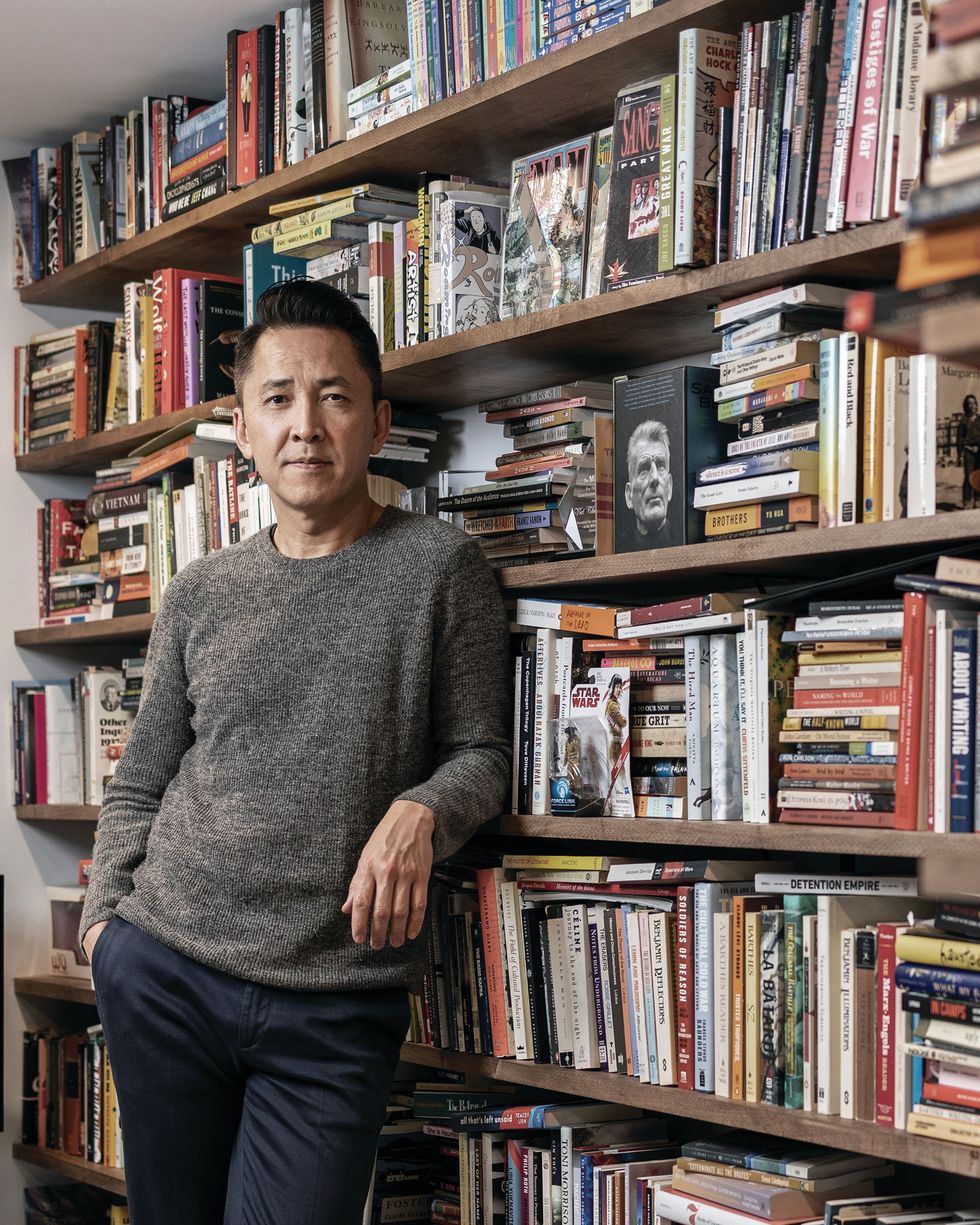 DUSTIN SNIPES
DUSTIN SNIPES
Viet Thanh Nguyen at his home in Pasadena. His novel The Sympathizer won the 2016 Pulitzer Prize for Fiction.
One of your latest reinventions is as a children’s book writer. A few years ago, you published a book with your son Ellison, and you have another on the way this year. This obviously must have been meaningful on a personal level. Did it change what you thought you were about as a writer?
The experience of writing Chicken of the Sea with Ellison really helped to make A Man of Two Faces possible, because that provocation…to not care about boundaries…totally liberated me to go and just have a blast. One of the things that I really love is just to be in the same room as Ellison when he watches a movie, because his laughter is incredible. And I think about how, at least for me, I believe statistics that people lose the capacity for sheer enjoyment with a work of art [as they age].
Well, you probably got one of the biggest laughs when you joked about wondering whether the Norton Lectures were about Norton anthologies.
You know, I was very boring and very serious as a grad student at Berkeley. And as a young professor, that’s how I survived, but there’s always inside of me that sort of spirit of irreverence and rebellion and reluctance to take myself seriously or to take, you know, academia seriously. I think I’ve learned a lot from just watching stand-up comedians, their work, and to see the risks that they take. I’ve learned a lot about how to deliver lectures just from that.
And so again, when we talk about crossing borders and mixing genres—humor, satire, stand-up comedy—these are also their own separate kinds of genres and subgenres which I’m trying to incorporate in A Man of Two Facesbut also in these lectures. Jokes work by trial and error, and stand-up comedians go through these drafting processes until they refine their joke, and most people hear only the final joke. But for me in the writing of these lectures, and the delivering of them, these are works in progress. And so I’m working out the humor and the ideas at the same time. That’s a very scary process.
I think you’re building footbridges that are crucial to the survival of people in a time that’s very dangerous for many reasons—in humor and in taking risks with ideas.
I think about how when I became an academic—as I said, it was a day job for me, but nevertheless a paid job in which the work that we’re supposed to do with academics and intellectuals is about ideas, about provocative ideas. Yes, ideas can matter at a very arcane level, but they also matter incredibly if one can speak about them in very plain fashion as well. The point of the lectures is to reach that mythical idea of a general public, whatever that happens to be. You asked me about their reception, and I have to say, for me, the most gratifying responses have not come from my fellow academics. The most gratifying responses have been students and these audiences, young people, people who have reached out to me on Instagram and social media, people who have little or no relationship to the professional world of arts and ideas and academia and literature and so on. People who responded to ideas like I did when I was 19. That is the most moving part about being an academic and a writer. This idea is the idea that ideas matter. And this is why when I try to explain my novel The Committed to people, I’m saying that the novel is about violence and crime and drugs and gangsters and so on, but the real action is the action of ideas.•
